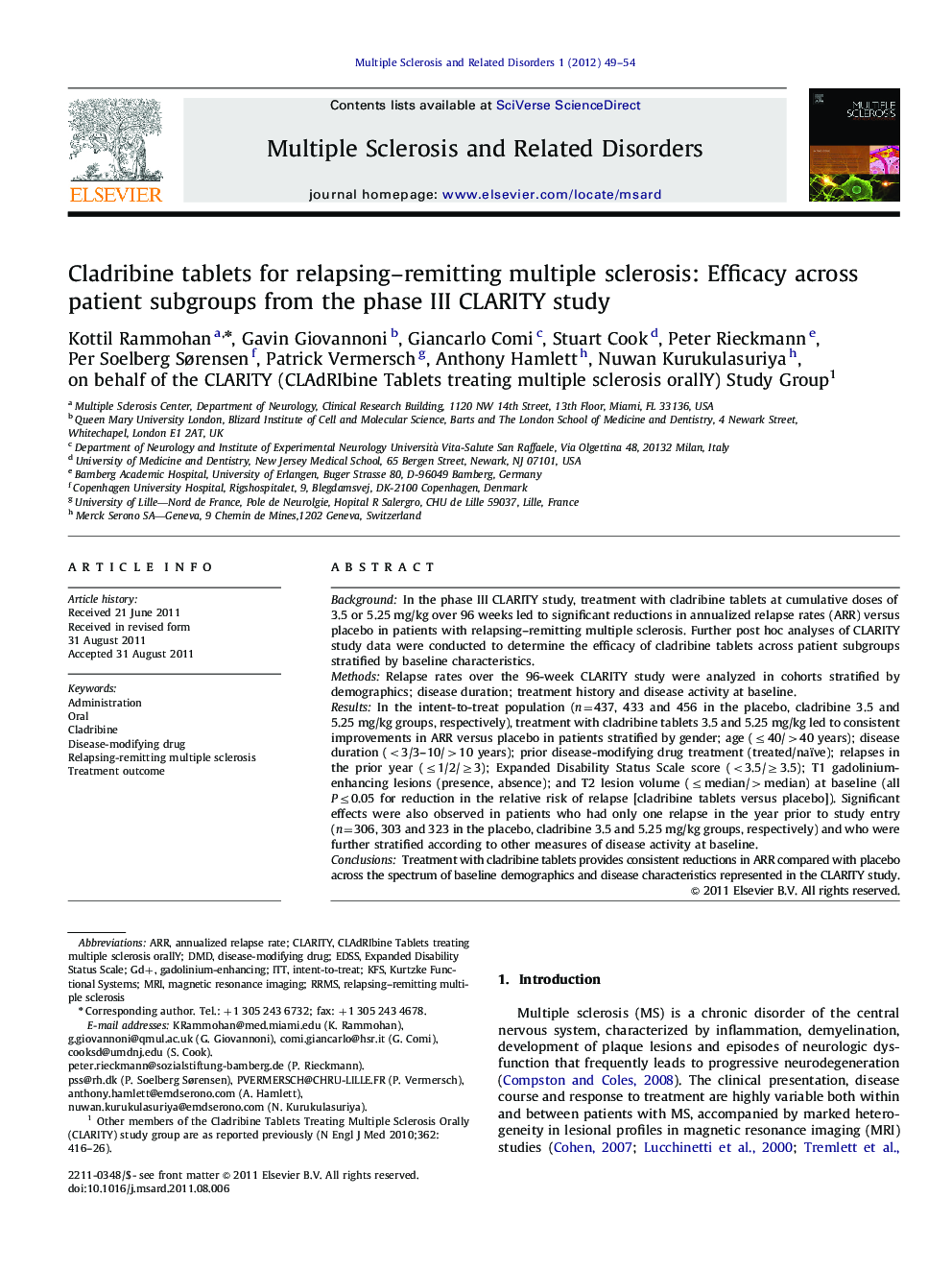| Article ID | Journal | Published Year | Pages | File Type |
|---|---|---|---|---|
| 2823902 | Multiple Sclerosis and Related Disorders | 2012 | 6 Pages |
BackgroundIn the phase III CLARITY study, treatment with cladribine tablets at cumulative doses of 3.5 or 5.25 mg/kg over 96 weeks led to significant reductions in annualized relapse rates (ARR) versus placebo in patients with relapsing–remitting multiple sclerosis. Further post hoc analyses of CLARITY study data were conducted to determine the efficacy of cladribine tablets across patient subgroups stratified by baseline characteristics.MethodsRelapse rates over the 96-week CLARITY study were analyzed in cohorts stratified by demographics; disease duration; treatment history and disease activity at baseline.ResultsIn the intent-to-treat population (n=437, 433 and 456 in the placebo, cladribine 3.5 and 5.25 mg/kg groups, respectively), treatment with cladribine tablets 3.5 and 5.25 mg/kg led to consistent improvements in ARR versus placebo in patients stratified by gender; age (≤40/>40 years); disease duration (<3/3–10/>10 years); prior disease-modifying drug treatment (treated/naïve); relapses in the prior year (≤1/2/≥3); Expanded Disability Status Scale score (<3.5/≥3.5); T1 gadolinium-enhancing lesions (presence, absence); and T2 lesion volume (≤median/>median) at baseline (all P≤0.05 for reduction in the relative risk of relapse [cladribine tablets versus placebo]). Significant effects were also observed in patients who had only one relapse in the year prior to study entry (n=306, 303 and 323 in the placebo, cladribine 3.5 and 5.25 mg/kg groups, respectively) and who were further stratified according to other measures of disease activity at baseline.ConclusionsTreatment with cladribine tablets provides consistent reductions in ARR compared with placebo across the spectrum of baseline demographics and disease characteristics represented in the CLARITY study.
► Short-course annual treatment with cladribine tablets reduces relapse rates compared with placebo, across a range of patient subgroups. ► Patients with disease characteristics predictive of clinical activity and disease progression experience significant reductions in relapse rates versus placebo. ► These findings provide an important contribution to our understanding of the therapeutic potential of such treatment modalities.
